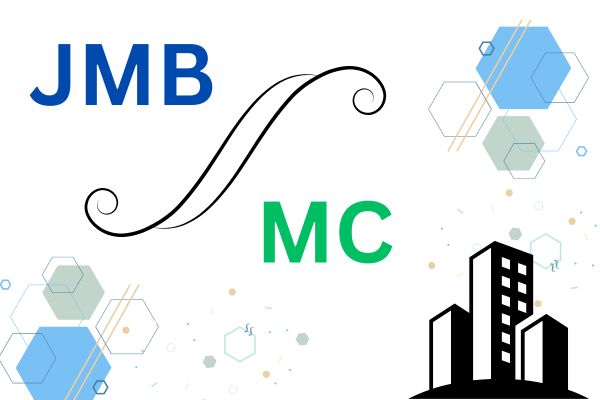If you live in a multi-unit property, such as a condominium or apartment complex, you’ve likely heard of the terms JMB (Joint Management Body) and MC (Management Corporation). Both are responsible for the management and maintenance of the property, but they serve different purposes and exist at different stages of the property’s life cycle.
In this article, we’ll explain what both the JMB and MC are, their roles, and most importantly, highlight the differences between them.
What is a Joint Management Body (JMB)?
A Joint Management Body (JMB) is a temporary organization set up in the early stages of a property development. It is created after the building is completed, but before a Management Corporation (MC) is formed. The main purpose of the JMB is to handle the initial management and maintenance of the property, especially the common areas such as hallways, elevators, and shared facilities.
The JMB typically consists of:
- The developer of the property, who still holds a certain amount of control during this phase.
- The first few owners who move into the property after it’s completed.
The JMB is responsible for the day-to-day management of the property, including things like collecting maintenance fees, handling repairs, and ensuring that common areas are in good condition. However, the JMB’s authority is somewhat limited compared to the MC, and its role is only temporary until the MC is established.
What is a Management Corporation (MC)?
A Management Corporation (MC) is a permanent body that takes over the management of the property once a sufficient number of units have been sold, and the property is ready for full ownership and management by the residents. The MC is the governing body that assumes all responsibilities for the management, maintenance, and overall operation of the property.
The MC is typically made up of:
- Elected owners from the development, who represent all the property owners.
Once the MC is in place, it has full legal authority and control over the property. The MC can make long-term decisions, enforce rules, manage finances, and take legal action if needed. Unlike the JMB, which has limited authority, the MC has more power to make important decisions that affect the property.
Key Differences Between JMB and MC
While the JMB and MC share similar goals—namely, to manage the property and its common areas—there are several key differences between the two. Here’s a breakdown of the main distinctions:
| Aspect | JMB (Joint Management Body) | MC (Management Corporation) |
|---|---|---|
| Formation | Formed immediately after the building is completed, but before the MC is established. | Formed once a certain percentage of units are sold, and ownership is fully handed over to the owners. |
| Duration | Temporary – only exists until the MC is formed. | Permanent – continues to manage the property for as long as it exists. |
| Authority | Limited – can manage day-to-day operations, but has less legal authority. | Full authority – can create rules, enforce by-laws, and make legal decisions. |
| Composition | Consists of the developer and a few initial owners. | Made up of elected owners who represent the interests of all residents. |
| Responsibilities | Handles immediate management tasks, like maintenance and collecting fees. | Oversees long-term property management, including finances, major repairs, and rule enforcement. |
| Legal Powers | Limited legal power – does not have the full legal standing of the MC. | Has full legal standing – can take legal action, create by-laws, and enforce property rules. |
In Simple Terms: What’s the Difference?
- The JMB is a temporary body created to manage a property right after it’s completed, but before it’s fully handed over to the owners. It’s made up of the developer and the first few owners, and it helps the building get up and running.
- The MC, on the other hand, is a permanent body formed once enough units have been sold and ownership has been transferred. The MC takes over from the JMB and has much more authority and control over the property’s management for the long term.

Strata Management Hand Over Timeline Developer JMB MC Lawyer Malaysia
Conclusion
Both the JMB and the MC play crucial roles in the management of a multi-unit property. The JMB is responsible for managing the building in its early stages, handling basic maintenance and collecting fees. The MC takes over once the building is fully established and has the legal power to manage the property on a long-term basis, including enforcing rules, handling finances, and making major decisions.
Understanding the roles and differences between the JMB and MC is important for any property owner or resident. It helps clarify who to approach for different issues and how decisions are made in shared living spaces.
